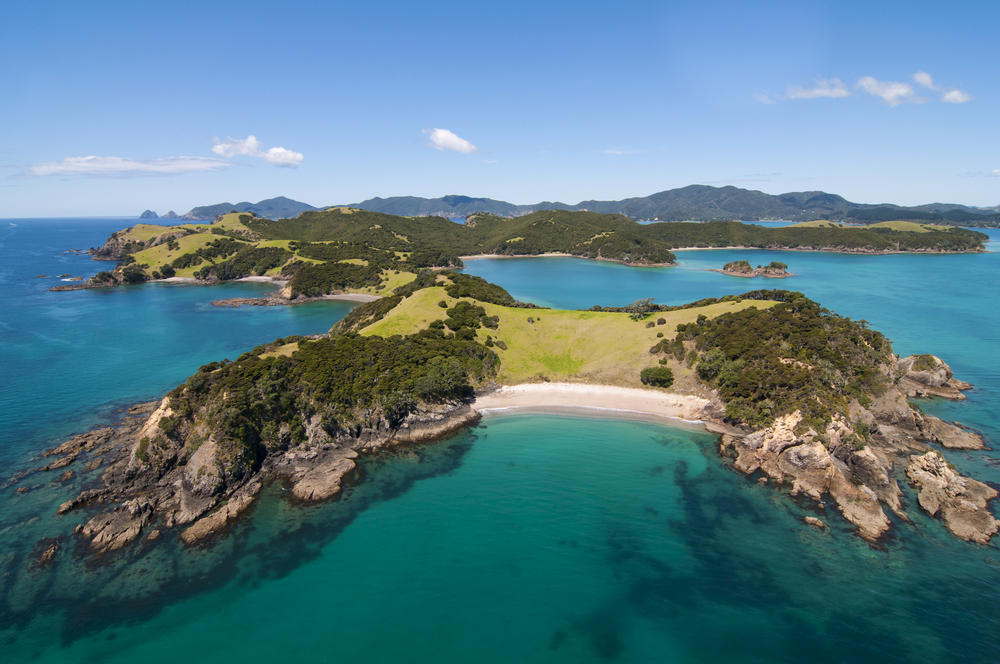
First rule: There are no rules. These resources are completely free and at your disposal. Use as much, or as little, as you want. Study casually, or work to create a portfolio of academic work that will blow the socks off of the educational establishment.
Feel free to adapt the materials for your own purposes. We expect families, business people, backpackers, college students, high school kids, middle aged vacationers, and retirees who are on a late life adventure to take these materials and run with them. We’d be very happy for teachers or travel group leaders to add these materials to their study abroad packets as well.
The nature of open source is collaboration, so please feel free to contribute when you become aware of resources we haven’t listed, or you have project ideas that we haven’t developed. Send us your work and inspire others to reach higher and deeper as they travel!
Our goal with this project is to inspire adventure and further education through experiential learning around the world. Please send us a note and let us know how you used these resources!
Buffet Style Learning
Does the menu look overwhelming? Looking for a formula to use as a skeleton for your studies in New Zealand?
Choose:
- Two books
- Two films
- Three articles
- One Problem & Solution or Project Option
- One Cultural Assignment
Table of Contents
- Books
- Books for Kids
- Films
- Articles
- Project Options
- Problems & Solutions
- Cultural Assignments
- Create Your Own Coursework
Book Recommendations
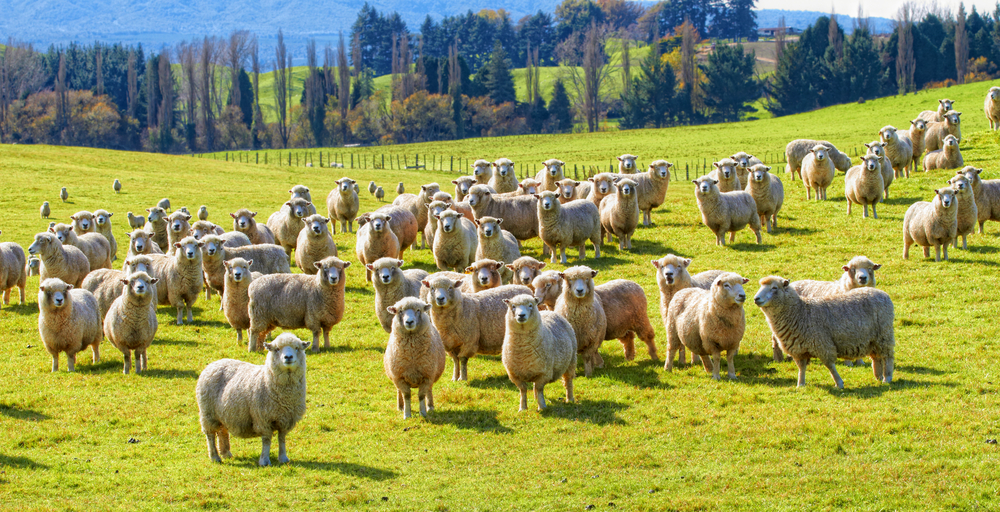
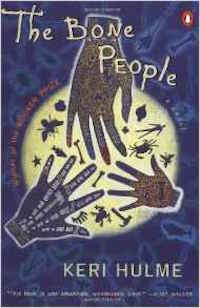 The Bone People
The Bone People
By Keri Hulme
In a tower on the New Zealand sea lives Kerewin Holmes, part Maori, part European, an artist estranged from her art, a woman in exile from her family. One night her solitude is disrupted by a visitor—a speechless, mercurial boy named Simon, who tries to steal from her and then repays her with his most precious possession. As Kerewin succumbs to Simon’s feral charm, she also falls under the spell of his Maori foster father Joe, who rescued the boy from a shipwreck and now treats him with an unsettling mixture of tenderness and brutality. Out of this unorthodox trinity Keri Hulme has created what is at once a mystery, a love story, and an ambitious exploration of the zone where Maori and European New Zealand meet, clash, and sometimes merge.
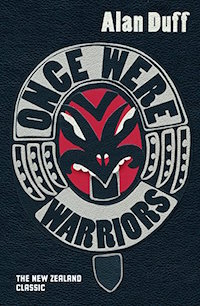 Once We Were Warriors
Once We Were Warriors
By Alan Duff
A New Zealand classic, this novel is a raw and powerful portrayal of Maori in New Zealand society. Alan Duff’s groundbreaking first novel is one of the most talked-about books ever published in New Zealand and is the basis of a major New Zealand film. This hard hitting story is a frank and uncompromising portrait in which everyone is a victim, until the strength and vision of one woman transcends brutality and leads the way to a new life.’Alan Duff’s first novel bursts upon our literary landscape with all the noise and power of a new volcano’ – Michael Gifkins, NZ Listener
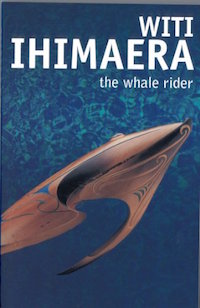 The Whale Rider
The Whale Rider
By Witi Ihimaera
Eight-year-old Kahu craves her great-grandfather’s love and attention. But he is focused on his duties as chief of a Maori tribe in Whangara, on the East Coast of New Zealand – a tribe that claims descent from the legendary ‘whale rider‘. In every generation since the whale rider, a male has inherited the title of chief. But now there is no male heir – there’s only kahu. She should be the next in line for the title, but her great-grandfather is blinded by tradition and sees no use for a girl. Kahu will not be ignored. And in her struggle she has a unique ally: the whale rider himself, from whom she has inherited the ability to communicate with whales. Once that sacred gift is revealed, Kahu may be able to re-establish her people’s ancestral connections, earn her great-grandfather’s attention – and lead her tribe to a bold new future.
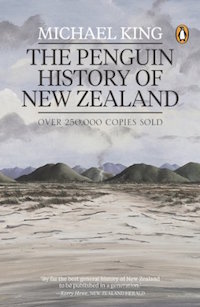 The Penguin History of New Zealand
The Penguin History of New Zealand
By Michael King
New Zealand was the last country in the world to be discovered and settled by humankind. It was also the first to introduce full democracy. Between those events, and in the century that followed the franchise, the movements and the conflicts of human history have been played out more intensively and more rapidly in New Zealand than anywhere else on Earth.
The Penguin History of New Zealand, a new book for a new century, tells that story in all its color and drama. The narrative that emerges is an inclusive one about men and women, Maori and Pakeha.
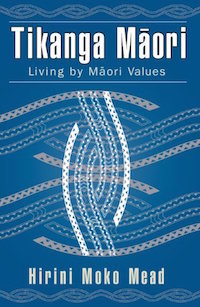 Tikanga Maori: Living by Maori Values
Tikanga Maori: Living by Maori Values
By Hirini Moko Mead
Professor Hirini Moko Mead’s comprehensive survey of tikanga Maori (Maori custom) is the most substantial of its kind every published. Ranging over topics from the everyday to the esoteric, it provides a breadth of perspectives and authoritative commentary on the principles and practice of tikanga Maori past and present.
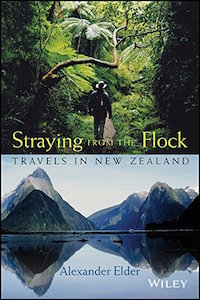 Straying from the Flock
Straying from the Flock
By Alexander Elder
An illuminating road trip through the history, life, and attractions of one of the most beautiful countries in the southern hemisphere. The beauty and grandeur of New Zealand has captured the imagination of movie-goers over the past couple of years, and the country is a dream destination for many around the world.
Straying from the Flock is an intimate and personal account of one passionate traveler’s visit to this incredible country, its mountains and beaches, fjords, rainforests, vineyards, and hidden eateries. Each of the fifty chapters describes one day in his travels-fishing, flying, cattle herding, befriending locals at every turn. Filled with colorful stories and memorable personalities, the book not only describes the trip of a lifetime, but captures a life-altering experience for its writer.
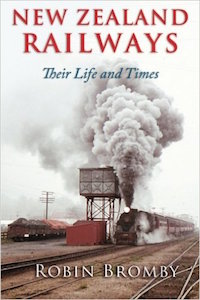 New Zealand Railways: Their Life and Times
New Zealand Railways: Their Life and Times
New Zealand railway builders surmounted many obstacles: the terrain, a sparse and scattered population, two islands separated by an often stormy stretch of water, demands from every small settlement for their own railway line. But build a railway system — and a comprehensive one at that — New Zealand did. This is the story of that railway, from its heyday to the day of reckoning as losses had to be confronted. By 1953 the pattern was clear. The era of railways as the mainstay of land transport throughout New Zealand was ending. One by one, most of the rural branches would disappear over the next forty years; passenger train travel — other than commuter services in Auckland and Wellington — would almost disappear to a stage where there are just a handful of tourist services on the most scenic lines; all but the largest towns would lose their railway station. But, until then, the railways of New Zealand were part of almost everyone’s life: you caught the train to visit friends and relatives in other parts of New Zealand, you depended on the trains to carry the bulk of the freight that moved to and from the ports. This is their story. Profusely illustrated with photographs and maps.
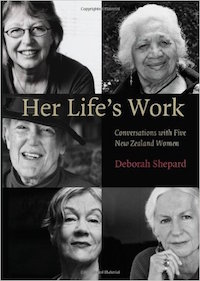 Her Life’s Work: Conversations with Five New Zealand Women
Her Life’s Work: Conversations with Five New Zealand Women
By Deborah Shephard
Spanning the impressive careers of five notable New Zealand women, this uncommon examination portrays the lives of Merimeri Penfold, Margaret Mahy, Anne Salmond, Gaylene Preston, and Jacqueline Fahey. Having each carved out their own distinguished reputations as artists, writers, teachers, filmmakers, and thinkers, this investigation demonstrates how each of them has balanced a professional life with a personal one. In five in-depth interviews, this record explores their families, education, the impact intimate relationships have on their creativity, and how each juggles life’s demands. Touching on major events and challenges, this study also depicts the Land March in 1975, the rise of feminism, and the genesis of Indigenous rights movements.
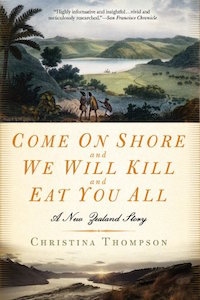 Come on Shore and We Will Kill and Eat You All: A New Zealand Story
Come on Shore and We Will Kill and Eat You All: A New Zealand Story
By Christina Thompson
In this involving, compassionate memoir, Christina Thompson tells the story of her romance and eventual marriage to a Maori man, interspersing it with a narrative history of the cultural collision between Westerners and the Maoris of New Zealand. Despite their significant differences, Thompson and her husband, Seven, share a similar sense of adventure and a willingness to depart from the customs of their families and forge a life together on their own. Thompson explores cultural displacement through the ages and the fascinating history of Europeans in the South Pacific, beginning with Abel Tasman’s discovery of New Zealand in 1642. Yet at its core, this is the story of two people who meet, fall in love, and are forever changed.
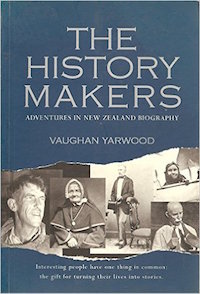 The History Makers: Adventures in New Zealand Biography
The History Makers: Adventures in New Zealand Biography
By Vaughan Yarwood
Features studies of George Grey, Joan Wiffen, Edmund Hillary, Jean Batten, Felix von Luckner, Richard Pearse, Suzanne Aubert, Herbert Guthrie-Smith, and James K. Baxter
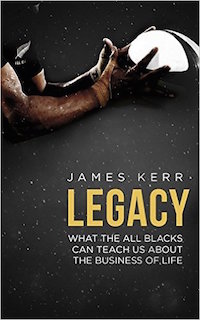 Legacy
Legacy
By James Kerr
In Legacy, best-selling author James Kerr goes deep into the heart of the world’s most successful sporting team, the legendary All Blacks of New Zealand, to reveal 15 powerful and practical lessons for leadership and business. Legacy is a unique, inspiring handbook for leaders in all fields, and asks: What are the secrets of success – sustained success? How do you achieve world-class standards, day after day, week after week, year after year? How do you handle pressure? How do you train to win at the highest level? What do you leave behind you after you’re gone?
Kids Book Recommendations
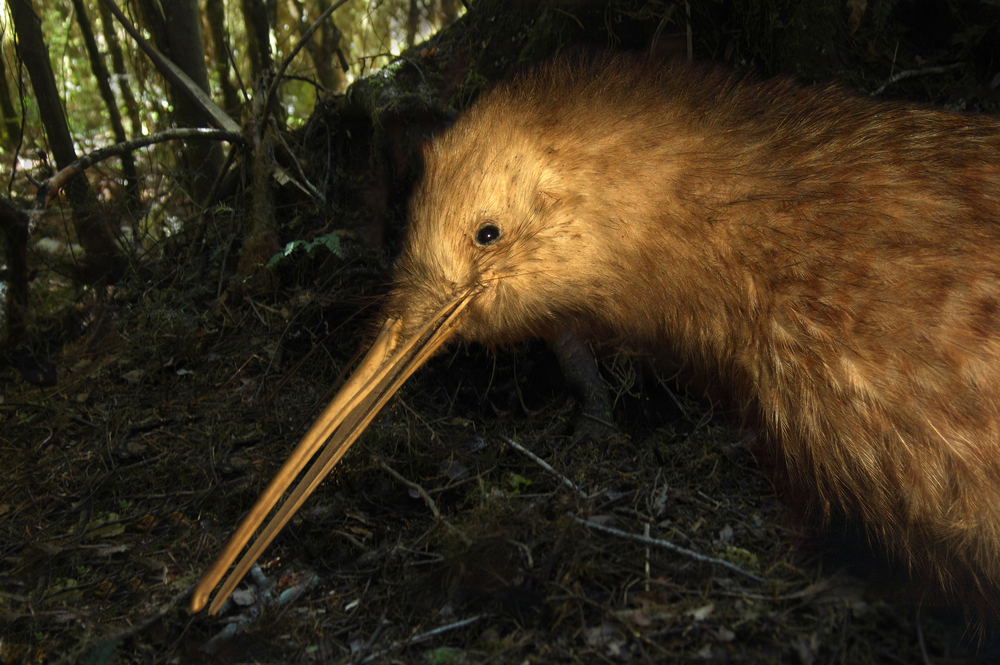
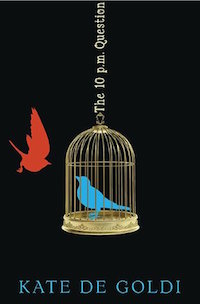 The 10 P.M. Question
The 10 P.M. Question
By Kate de Goldi
Twelve-year-old Frankie Parsons is a talented kid with a quirky family, a best friend named Gigs, and a voice of anxiety constantly nibbling in his head: Could that kidney-shaped spot on his chest be a galloping cancer? Are the smoke alarm batteries flat? Has his cat, The Fat Controller, given them all worms? Only Ma, who never leaves home, takes Frankie’s worries seriously. But then, it is Ma who is the cause of the most troubling question of all, the one Frankie can never bring himself to ask. When a new girl arrives at school — a daring free spirit with unavoidable questions of her own — Frankie’s carefully guarded world begins to unravel, leading him to a painful confrontation with the ultimate 10 p.m. question.
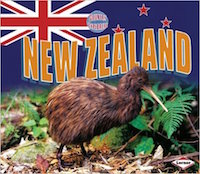 New Zealand (Country Explorers)
New Zealand (Country Explorers)
by Lyn Larson
This engaging title explores the geography, landscape, history, people, and culture of New Zealand. Appealing text and up-to-date photos showing people in everyday settings invite young readers to learn more about modern world cultures. Accessible yet packed with information, New Zealand will appeal to geography students and casual readers alike.
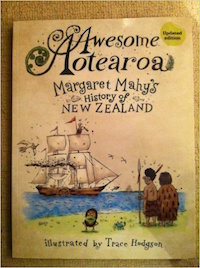 Awesome Aotearoa: A Kids’ History of New Zealand
Awesome Aotearoa: A Kids’ History of New Zealand
by Margaret Mahy
Margaret Mahy lives in New Zealand and is internationally acknowledged as one of the most outstanding children’s writers today. She is the author of more than two hundred books for children of all ages, two of which have received England’s Carnegie Medal and others of which have garnered numerous citations from the American Library Association. She is also the recipient of An Order of New Zealand, the highest honor a citizen can receive. In 2006 she received the Hans Christian Andersen award for her contributions to international children’s literature.
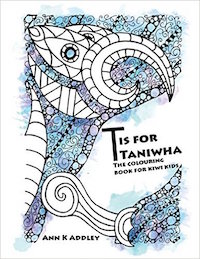 T is for Taniwha: The colouring book for kiwi kids
T is for Taniwha: The colouring book for kiwi kids
by Ann K Addley
The colouring book for kiwi kids. This fun Zen doodle colouring book includes the alphabet and New Zealand themed illustrations. It will keep the kids busy for hours, as they learn about their country and culture while they colour. This book includes: Clear line drawings ABCs Information about New Zealand Original New Zealand designs So grab your colouring pencils and have a go.
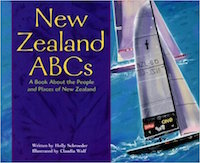 New Zealand ABCs: A Book About the People and Places of New Zealand
New Zealand ABCs: A Book About the People and Places of New Zealand
by Holly Schroeder
An alphabetical exploration of the people, geography, animals, plants, history, and culture of New Zealand.
Film Recommendations
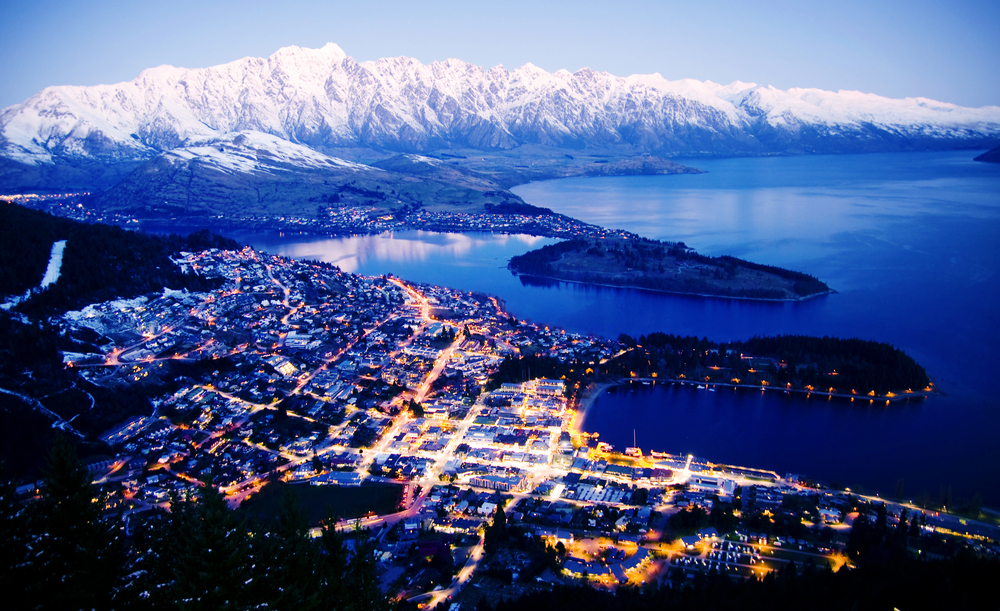
Once Were Warriors
In Once We Were Warriors, A family descended from Maori warriors is bedeviled by a violent father and the societal problems of being treated as outcasts.
Whale Rider
Set on the east coast of New Zealand in 1984, Boy, an 11-year-old kid and devout Michael Jackson fan, gets a chance to know his father, who has returned to find a bag of money he buried years ago.
The World’s Fastest Indian
The famous trilogy, based on the epic adventures of Frodo Baggins penned by J.R.R. Tolkein, is directed by New Zealander Peter Jackson. For both the Lord of the Rings and the Hobbit films, Jackson turned his homeland into Tolkein’s Middle Earth, and fans will find familiar landscapes familiar across the whole of New Zealand.
Last Paradise
The New Zealand Wars
Five-part series The New Zealand Wars took a new look at the history of M?ori vs P?keh? armed conflict. It was presented by historian James Belich, who with his arm-waving zeal proved a persuasive on-screen presence: “we don’t need to look overseas for our Robin Hood, our Genghis Khan, Joan of Arc, or Gandhi”. The popular series reframed NZ history, and its stories of H?ne Heke, Governor Grey, T?tokowaru, Te Whiti, Von Tempsky and Te Kooti, easily affirmed Belich’s conviction. The New Zealand Wars was judged Best Documentary at the 1998 Qantas Media Awards.
When a City Falls
Thin Ice: The Inside Story of Climate Change. In recent years climate science has come under increasing attack, so geologist Simon Lamb took his camera to find out what is really going on from his climate science colleagues. Simon followed scientists at work in the Arctic, Antarctic, Southern Ocean, New Zealand, Europe and the USA. They talk about their work, and their hopes and fears, with a rare candor and directness. This creates an intimate portrait of the global community of researchers racing to understand our planet’s changing climate.
Hunt for the Wilder People
A national manhunt is ordered for a rebellious kid and his foster uncle who go missing in the wild New Zealand bush.
The Black Power Gang in New Zealand
There are numerous gangs in New Zealand, of varying criminality, organisation and ethnicity. The New Zealand Police have distinguished between “New Zealand gangs”, outlaw motorcycle gangs and local street gangs. They named the three most prominent “New Zealand gangs” as Black Power (not related to the African-American movement); the Mongrel Mob, and the Nomads.
Inside All Blacks
Putting Homelessness in Focus – Part 1
A documentary about homelessness in New Zealand.
Putting Homelessness in Focus – part 2
Face Tattoo – Maori Ta Moko New Zealand
Te Kahautu Maxwell is an extraordinary person, an academic, a stalwart of the Ringatu faith and a haka exponent, who grew up in Opotiki under the teachings of his elders. This documentary is Maori with English subtitles.
Poisoning Paradise – Ecocide New Zealand – Festival Version
This New Zealand film has won 4 international environmental awards – but here in NZ, TV channels refuse to play it. Why? Because if they did, there would be outrage and riots over New Zealand’s use of aerially applied 1080 poison. See for yourself …
Haka Documentary: We Belong Here
The game begins far away from the glare of stadium lights. It starts in the nation that shapes you. On the fields where you hone your skill. In the gyms where you strengthen your body. And in the locker room where you ready your mind for battle. In this game, the ones who handle the expectation and pressure of their nation will be the ones who triumph. The game starts here.
Watch the Haka Documentary to learn about the inspiration and message behind the most recognizable pre match ritual. The top rugby team in the world draws strength from its homeland, ancestors and spirits to prepare to write the next chapter of their legacy.
Article Recommendations
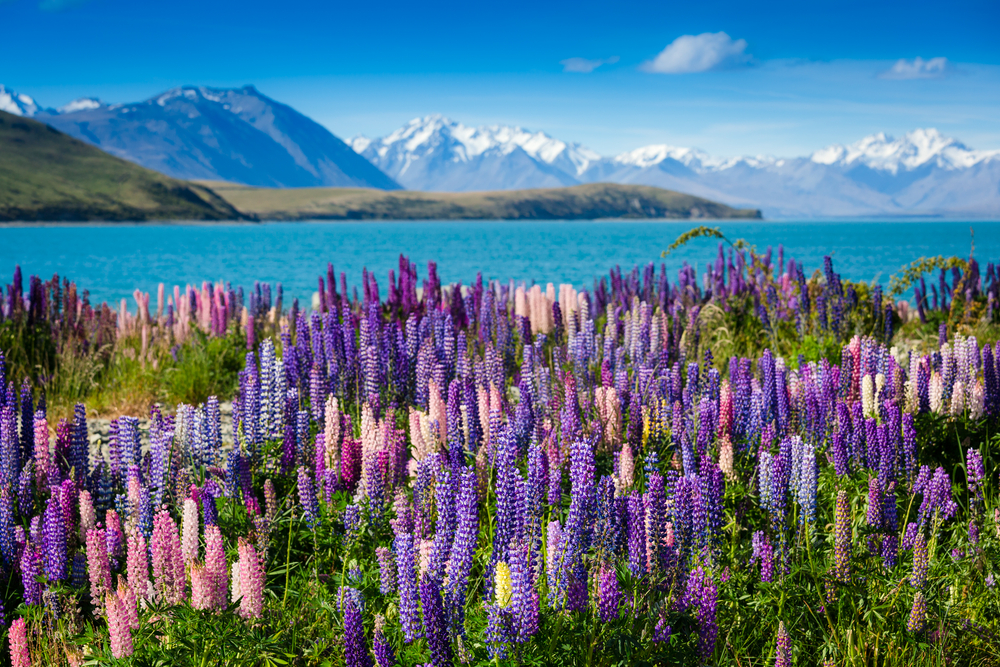
New Zealand’s Green Tourism Push Clashes With Realities – New York Times
Beyond Rio: New Zealand’s Environmental Record Since the Original Earth Summit – WWF
New Zealand’s most shameful secret: ‘We have normalized child poverty’ – The Guardian
Education investigation: The great divide – NZ Herald
Waitangi Day – NZ History
A Crash Course in the History of NZ Music – Institute for Study Abroad
Sport and the nation – Te Ara
Conservationists turn tiny New Zealand island into bold wildlife experiment – The Guardian
1080 – New Zealand Geographic
Christchurch earthquake: ‘That’s life – you get used to the rumbles’ – The Guardian
Resources for exploring the outdoors:
Te Araroa- New Zealand’s Trail
NOLS Outdoor Leadership Courses
Project Options:
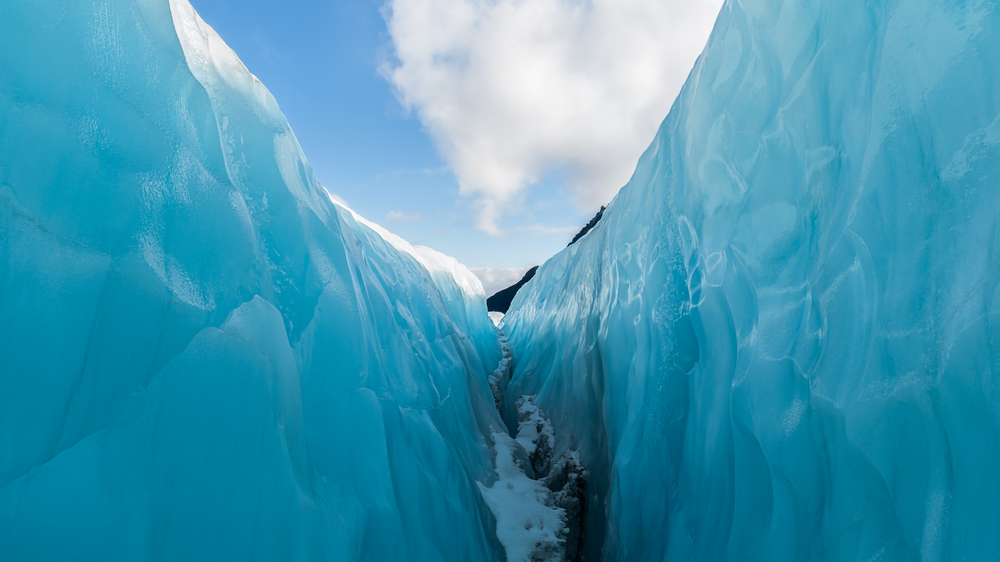
Arrival of Maori in Aotearoa
The Maori are the original inhabitants of the Land of the Long White Cloud, thought to have arrived from a Polynesian Island named Hawaiki. Explore Maori history and their legendary stories to learn how Kupe first arrived in Aotearoa. Many iwi (tribes) trace their ancestry back to a specific waka hourua (voyaging canoe) arriving from Hawaiki. Across both islands, different iwi have different stories about Kupe and their origins in their ‘new homeland’. Research how these stories are tied to the geography of each part of New Zealand.
Early European Explorers
Delve into the European ‘discovery’ of New Zealand. What countries were involved? Research the expeditions of Abel Tasman and Captain Cook. How did they first come across New Zealand, what were their initial encounters with the native Maori, and how did their expeditions pave the way for European settlement of Aotearoa?
European Settlement
Research the original European settlers to New Zealand including sealers and missionaries. What countries did they come from and what brought them so far from home? How were their relations with the local Maori tribes?
When did British colonization begin, and how was the settlement of British citizens in New Zealand different than in Australia and other British colonies? Today, many cities and towns in New Zealand have a distinct tie to places in the ‘homeland’. For example, Dunedin is the Scottish Gaelic name for Edinburgh. Explore the history of several of these original settlements across both islands.
Waitangi Day
This day acknowledges the 1840 signing of the Waitangi Treaty, which essentially granted the land claimed by Maori to the British Crown. Research the treaty itself, the controversy that surrounds it, and the effect on how Waitangi Day is observed in New Zealand today.
Women’s Suffrage
In September 1893, New Zealand became the first democracy to grant all women the right to vote. What were the events leading up to women’s suffrage in New Zealand? Who signed the act into law? Did New Zealand’s example impact women gaining the right to vote in other countries like the United States and Great Britain?
NZ Music
New Zealander’s take great pride in their homegrown musicians. Explore the history of music in New Zealand’s across all landscapes, both traditional and modern. What are the unique sounds you can find in New Zealand music and what genres have arisen from those influences? How has festival culture taken a hold of the country and what are some of the main festivals that highlight Kiwi artists?
Maori Artwork
From wood and bone carvings to the importance of pounamu (greenstone/jade) to weaving, traditional Maori art and craftwork thrives across both islands in New Zealand. Identify parts of the country that are known for specific craftsmanship. For example, Hokitika and the West Coast of the South Island is the birthplace of New Zealand jade. Visit these places. Observe the crafts if you can. Perhaps arrange an internship, or some lessons.
Performing Arts
New Zealanders have always been lauded for their innovation, and the performing arts are no exception. Research the variety of dance and theatre troupes in Wellington, Auckland and beyond. Read about the history of a particular organization or investigate performing arts outreach programs throughout the country. Explore the origins of the Haka and its place in traditional Maori and popular culture today.
Profiles of …..
Conduct a series of at least five interviews within a country. The point of the exercise would be to get a well rounded view of what it is like to live in New Zealand from a variety of ages, incomes, employments and experiences. This could be conducted as video, or as text. Do an in depth analysis of the experience/information.
People you might profile:
- Farmers
- Teachers
- Restaurant owners/workers
- Clergy or Nuns
- Government officials
- Doctors or nurses
- Cafe owners
- Street vendors
- Children
- Parents
- Drivers
- Artists or musicians
- Laborers
- Cab drivers
- Long term expats
- Farmers
- Winemakers
- Restaurant owners/workers
- Member of a local marae
- Adventure tourism professional
- Fisherman
- Local historian
- Department of Conservation worker
Problems & Solutions
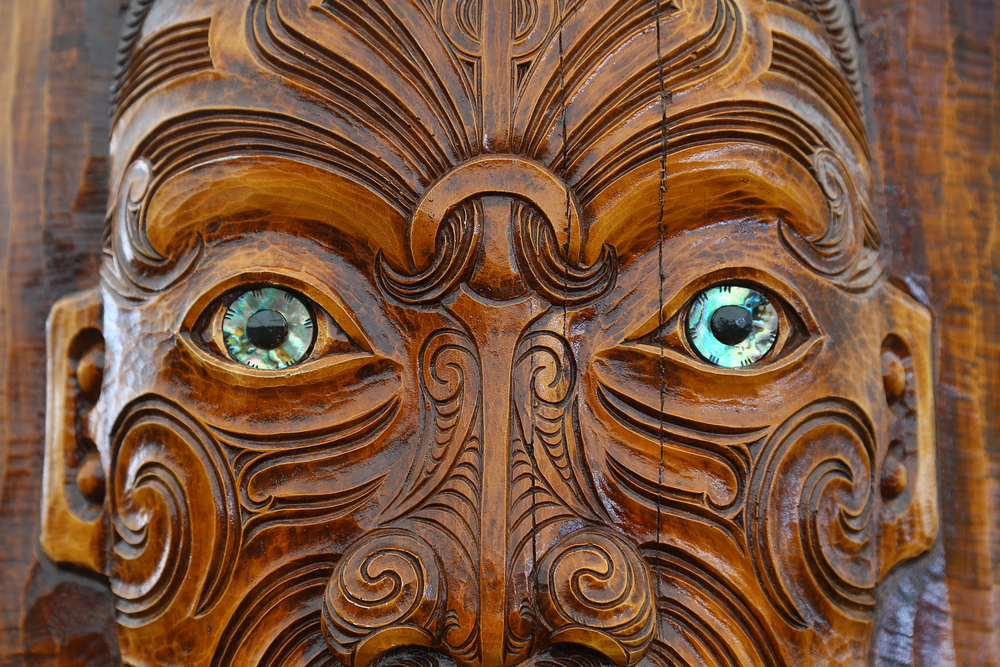
Child Poverty
For a developed democratic country, the statistics on child poverty in New Zealand are astounding. According to the country’s child poverty monitor, over 300,000 children are living below the poverty line. That’s three out of every five New Zealand children. In turn, this problem snowballs into many more. It translates to child hunger, increased health issues, living in crowded and cold homes, and poor education.
Identify a few of the complex issues that have led to the current child poverty rates. Where in New Zealand is this issue most prevalent and what groups are most affected? Organizations like Unicef NZ and KidsCan have a number of initiatives aimed at every area of child poverty. What is working? What still needs to be done? Talk to some local volunteers or social workers and examine how this issue takes form in your own area. Then connect what you learn within one community to the problem on a national level.
Sustainability Issues
When it comes to being green New Zealand’s ‘100% Pure’ campaign can be a little misleading. The logging and farming industries, along with others, have taken a toll on New Zealand land overtime. Increased greenhouse gasses released when forests are cut down, runoff from farms entering streams and rivers, introduced trees pushing out native vegetation, the effect of chemicals on organisms in the soil, risk of erosion in deforested blocks of land, all of these are real threats to New Zealand’s extraordinary yet fragile natural ecosystem.
Research in depth a few of the main problems in land sustainability, find out who the culprits are, and the long-term effect on the environment if these problems aren’t addressed. As public awareness grows in this area, a lot of solutions are being tested, like planting trees on open land prone to erosion and offering incentive schemes. Pick a few of these proposed solutions or come up with your own. What are their shortfalls, how could they help make land use more sustainable in New Zealand?
Racial Issues
Despite the fact that modern New Zealand’s cultural identity is tied so tightly to the native Maori, and that representation can be seen across all areas of social and political life, the relationship between Maori and Pakeha (white New Zealanders) is still a complex and fragile one. Racial discrimination is an ongoing problem in New Zealand today and some argue there is a structural imbalance within society that contributes to problems like higher unemployment and poverty among indigenous and minority groups.
Examine one or two specific areas, such as education, drug use, housing issues, government representation, or preservation of cultural heritage. Then do your research and identify some of the issues surrounding race in relation to that specific focus. Does the system of laws and social practices in New Zealand seem to perpetuate the problems that you find?
What is the origin of those issues, and what is the perception of these potential injustices in popular society? What solutions can you propose to create a better and more equal society between Maori or minorities and Pakeha?
Invasive Species
You will notice, when you arrive in New Zealand, the very strict rules surrounding what can, and cannot, be brought into the country. New Zealand is a closed ecosystem. It is an entirely GMO free country and the isolation provided by virtue of the geography grants them the ability to preserve their ecosystem in ways that connected countries cannot.
What can, and cannot be imported, and why? Discover some of the major problems that have resulted from importation of invasive plants or animal species. What has this meant for the native species? Do you think New Zealand is right to enforce their stringent laws surrounding these things, or not? Why?
Cultural Assignment Options
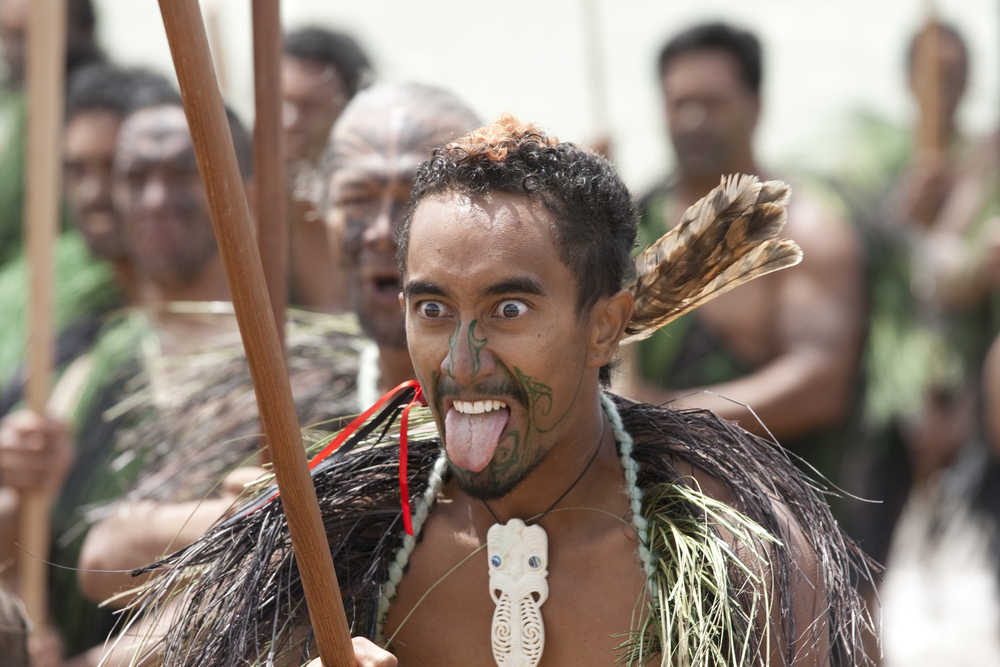
Study the Language
Along with English, Maori is the national language of New Zealand. You will see it on all road signs, on your guidebook maps, and hear certain words mixed into everyday use. Aotearoa, meaning Land of the Long White Cloud, is the Maori name for New Zealand and is used just as frequently as its European name. Maori language classes abound in places like Auckland and Wellington. It’s a fun, useful, and fairly easy language to learn while spending time in New Zealand. Sign up for evening classes or a week-to-two week course, record your hours, and make sure to get verification of completion from the school.
Sample the Foods
While much of the food in this westernized nation will not be unfamiliar, there are some classic New Zealand staples you should be sure to sample on your trip. Document through a fun photo essay or entertaining video of your experience. Bonus points if you’re able to visit a marae and try a traditional Hangi.
Have a Meaningful Interaction With a Local
What is a meaningful interaction? You get to decide that. In general, it should be an interaction in which cultural exchange took place and you learned something. Often this will be with a local person; sometimes it will be with another traveler.
This is the perfect assignment for newcomers to New Zealand. If you choose just one cultural assignment, make it this one. Kiwis are famous for their hospitality. They are notoriously helpful, engaging, and genuinely concerned about the impression you walk away from their humble little country with. During the year and a half I spent in New Zealand, I had several ordinary, yet very extraordinary, encounters with locals and expats that helped me feel at home while so very far away from home. Welcome these experiences (it’s likely you won’t even need to go looking for them), and be able to recognize them while they are happening.
Reflect on your interactions in a thoughtful blog post or journal entry.
Take a Class….
- Cooking
- Art
- Language
- Outdoor sport
- Music
- Permaculture
- Yoga
- Anything else you can find!
Go to a Museum
If you only hit one, make it Te Papa, the national museum of New Zealand in the country’s capital, Wellington. Make a point to see a variety of different collections and visiting exhibitions, save the ticket stubs, and share what you’ve learned.
Volunteer
There are numerous volunteer opportunities available, both advertised on line and unadvertised locally. Look for them at a school, a social project, an NGO, environmental activist group, building project, or something entirely different.
Photos of work, or documentation from project leader are a couple of options for documenting this one. As is a write up of the organization, what they are doing and how you helped. Preferably this is more than one day.
Try a New Sport
Ever heard of dragon boat racing? It’s all the rage on Wellington’s harbor and throughout other parts of the country. Find a way to join in or go watch the annual festival. If you’re more into land sports, join a pick-up rugby game. It’ll be a great way to gain some valuable knowledge of New Zealand’s favorite pastime.
Live Local
Hostels in New Zealand come in many forms, to get off the beaten path stay in an independently owned, in-the-backyard-of-the-owner type place, usually found in smaller towns and advertised right alongside your more standard lodging. Try renting an Airbnb in a town not on the tourist route. There’s a high chance you may also be invited by a local to stay in their house for a night or two, even if you just met while passing through their town, this is not unheard of in New Zealand and could turn into one of those meaningful connections. Of course, use your best judgment and never accept invitations that might put you in an unsafe situation.
WWOOF
Organizations like WWOOF and HelpX are fantastic options if you’re looking at work for accommodation in New Zealand. Every part of the country is filled with hosts looking to provide lodging in exchange for a few hours of chores a day. This is also a great opportunity to learn a new skill or work in your travel goals.
For example, if interested in surfing, you could look for a host in the popular beach town of Raglan. Up for an adventure? Go off-the-grid on Great Barrier Island or venture to the southernmost Stewart Island. Always wanted to learn about organic gardening? There will be a host willing to show you the ropes if you provide the labor. You could work on a vineyard, nanny for an urban family, pick fruit, help with a building project…the choices and the learning experiences are endless.
After your stay, request a letter of recommendation or some other form of feedback that you can add to your CV.
Attend a Religious Observance
One way to learn more about a country or culture is to study the religious aspect of life. Attend a church service, visit a shrine, or an indigenous ritual. Visit a religious festival or event. Or, if you’re very lucky, score an invitation to a wedding or funeral for a window into the way that religious ritual is woven into the fabric of life. Compare and contrast this to your other experiences, at home and abroad. What did you learn about New Zealand or New Zealanders as a result of this experience? How did it make you feel? What did you learn about yourself?
How to Create Your Own Course Work

Ask
Learn to ask for what you want. If you meet someone interesting, ask them to teach you. Ask them for an interview. Ask to shadow them for a day or a week. You’ll be surprised at how eager people are to share what they know and teach when someone shows actual interest. Learn to ask questions. Learn to take social risks by putting yourself out there as a learner.
Plan
You have an idea or an interest. Something surprises you on your journey and all of a sudden you have a burning desire to know more. Plan your attack:
- Narrow your field of study to a particular question or topic.
- Compile resources: Look for teachers. Who knows what you need to know? Or who can you interview to learn more? Are there books or videos on the topic you’re interested in?
- Quantify it. How will you demonstrate what you have learned? A research paper, a video project, a photo essay, through art or music, a blog post, a published piece, an interview series, a mini documentary or do you have some other idea?
Produce
Produce a quality piece of academic work that reflects your experiential learning. The whole key to quantifying outside the box learning is to translate it into something that reflects the value of what you learned and how it contributed to your overall educational process.
Perhaps this will be as simple as a traditional research paper, depending on the depth and length of your study this could be as short as three pages or as long as a dissertation. Maybe you’ll produce a video for YouTube, or something grander, like a mini-documentary. Perhaps you’ll do something concrete instead, an art, or community action project and you’ll tell the story through a photo essay, or a series of blog posts. The possibilities are limited only by the resources you have at hand. Get creative. Think outside the box and truly experience your education.
Do You Have Anything to Add to This Resource Page?
We’re actively seeking to grow these resources in an open-source spirit. Please email jenn(at)bootsnall(dot)com with your edits or submissions of new information or materials.
Thank you!
 Taylor St. John is a freelance writer and New Jersey native who has been working and traveling through New Zealand, Australia, Southeast Asia and Scotland for the last four years. A self-proclaimed working holiday expert and a huge proponent of experiential travel, she is thankful that the opportunity to explore new places has molded her into a braver person with a changed perspective of how life can be lived and enjoyed. Taylor is a ‘From the Field’ blogger for Vergemagazine.com and her articles have appeared in a wide variety of print and online publications. Learn more about her on her blog: The Outroads
Taylor St. John is a freelance writer and New Jersey native who has been working and traveling through New Zealand, Australia, Southeast Asia and Scotland for the last four years. A self-proclaimed working holiday expert and a huge proponent of experiential travel, she is thankful that the opportunity to explore new places has molded her into a braver person with a changed perspective of how life can be lived and enjoyed. Taylor is a ‘From the Field’ blogger for Vergemagazine.com and her articles have appeared in a wide variety of print and online publications. Learn more about her on her blog: The Outroads
Photo Credit:Patricia Hofmeester / Shutterstock.com,
